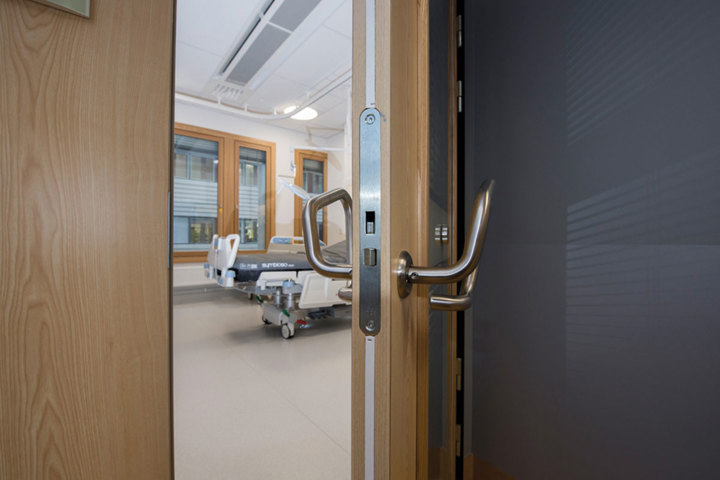
Covid-19: A game-changer for the medical profession
11 December 2020
With intensive care units brimming with patients, healthcare workers worldwide have shown both dedication and resilience throughout the pandemic – despite the risk of catching the virus themselves. In this feature, guest writer Dr Lena C Andersson, founder of SCC patron Anelca Clinic in London, interviews Dr Claire Stigare with first-hand experience from inside an intensive care unit for treating Covid-19 at Karolinska University Hospital in Stockholm.
Over the last half-century, we have been exposed to very few microorganism-threats (e.g. viruses and bacteria) that we have not had treatments or rapidly developed vaccinations for. Nurses and doctors in the developed work have generally felt safe and very few healthcare professionals have lost their lives after being infected at work. Everything has changed now with the coronavirus and the Covid-19 disease.
New dilemma to our generation
We were all aware of previous epidemics SARS1 in 2002 and the swine flu in 2009, when many patients required intensive care and ventilation in order to survive. It somehow did not alarm us enough, and the pandemic in 2019-20 came as a total surprise to most people in Europe and the rest of the world. It took a long time until Covid-19 was officially declared a pandemic by the World Health Organisation when many people had already been infected. It has emerged that cases were described with symptoms outside of China, as early as last autumn 2019. There had been rumours that the seasonal flu would be bad in 2019, and many healthcare professionals did opt to receive the seasonal flu vaccine. We do not have answers to all of our questions regarding virus transmission, although, the coronavirus does seem to spread rapidly mainly through “droplets in the air” but also through contact with contaminated surfaces. How does one cope with the new situation in medicine? We want to help our patients, but without catching the coronavirus and becoming seriously ill ourselves. This dilemma is new to our generation in the medical sciences, and we all have to learn.
Faced with a new unknown disease
I decided to talk to someone who has been faced with these thoughts and problems close up, over the last seven months, Dr Claire Stigare, Consultant in Intensive Care and Anaesthesia at the Karolinska University Hospital, Stockholm. “We discussed the possibility of us having to take care of each other in intensive care. It was very concerning that there was so much uncertainty, because with Covid-19 we were faced with a new unknown disease. Few of us entered the medical profession believing our job would put us in danger”.
Exchanging medical experiences
Dr Stigare and her colleagues initially contacted and spoke to doctors in Italy, Spain and in the UK, to exchange early clinical experiences, in order to provide the best possible care for the patients. “We were well staffed and prepared as the very sick patients started to arrive in the unit. Our bed capacity increased fourfold and thankfully we were never overwhelmed and could accept patients. The PPE (personal protection equipment) was available to us throughout. However, initially it was in short supply and we didn’t know from one week to the next whether it would remain available. PPE availability was very important for us all and accesses to PPE had a reassuring effect.“
Difficult for patients and relatives
“What has been the worst in all of this?” I asked. “Firstly, the unknown new territory facing a complex and devastating disease which affected multiple organs for which we had no specific treatment. Secondly, having to treat critically ill patients in the absence of their relatives and communicating with relatives remotely via telephone or video, conversations which we would normally have face to face. This has been incredibly difficult for patients and their relatives. Additionally, not knowing how the pandemic would develop and end, whether we would have the capacity to treat everyone who needed care. We are now seeing an increase again both in Sweden and in most parts of Europe. This time we feel more prepared and we will be able to apply treatments early on such as anticoagulants (blood-thinning drugs), corticosteroids and non-invasive breathing devices to reduce the need for ventilation and long stay on the intensive care unit”.
Many healthcare workers are fatigued
Dr Stigare continues: “Doctors and nurses have had to work very long shifts, in uncomfortable and cumbersome protective equipment. We have had the help of colleagues from other departments and from a variety of paramedical professions which has been extraordinary. But it has been a stressful time and many healthcare workers are fatigued”. In the UK, the clinical staff received national applauds regularly for their efforts to keep them supported. Dr Stigare says: “We have learned how to remain motivated and how teamwork is the only way forward”.
Backlog of patients
Due to the many Covid-19 patients, there is now a backlog of patients that need acute medical treatments in all countries. Some of the Covid-19 patients also need further long-term care, due to neurological complications, post- traumatic stress disorder, lung fibrosis, etc. The healthcare systems will inevitably feel the after effects from Covid-19 for many years to come and the whole Corona situation is a total game-changer in medicine.
Join our mailing list
and keep up-to-date with the Chamber's news and events.
Read our Privacy Policy here